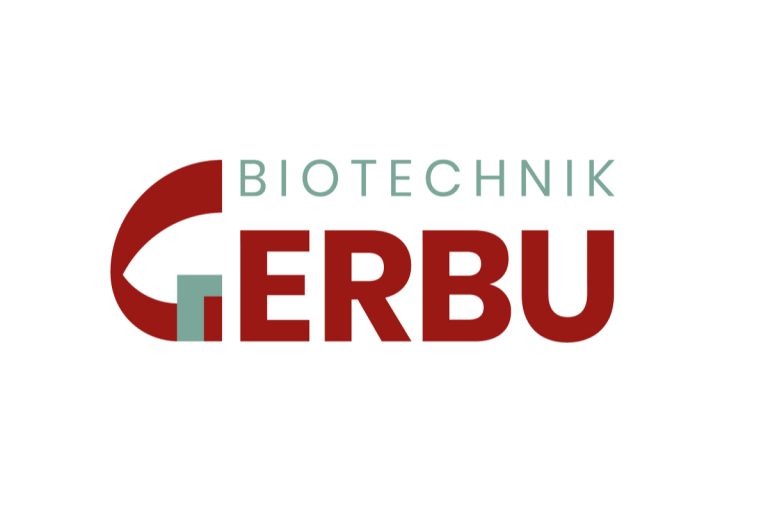Phase 3 Data Support ADUHELM™ Ability to Reduce Alzheimer’s Disease Clinical Decline
New Phase 3 Data has shown a positive correlation between the human monoclonal antibody ADUHELM™ treatment effect on biomarkers and reduction in clinical decline in Alzheimer’s disease.
One of the world’s first global biotechnology companies Biogen and Japanese pharmaceutical company headquartered Eisai, revealed that data from around 7,000 plasma samples from more than 1,800 participants in the Phase 3 clinical study focused on ADUHELM™ (aducanumab-avwa) demonstrated a statistically significant link between plasma p-tau decrease and reduced cognitive and functional decline in Alzheimer’s disease. Plasma p-tau181 reductions were likewise linked to a reduction in amyloid beta plaque. An independent lab performed a pre-specified examination of plasma samples from the two pivotal ADUHELM Phase 3 EMERGE and ENGAGE studies.
The outcomes have been introduced at the Clinical Trials on Alzheimer’s Disease (CTAD) conference, which took place both electronically and in Boston, Massachusetts, from November 9 to 12. Compared to placebo, ADUHELM dramatically reduced tau pathology, which is a distinguishing characteristic of Alzheimer’s disease, as evaluated by plasma p-tau181. The impact was stronger when the ADUHELM therapy was given at larger dosages and over a longer period of time. In ADUHELM-treated individuals, a lower level of plasma p-tau181 was associated with a statistically significant loss in cognition and function. Furthermore, the study found a statistically significant link between changes in plasma p-tau181 and a reduction in amyloid beta plaque, demonstrating ADUHELM’s impact on the disease’s two major pathological characteristics.
Alfred Sandrock, Jr., M.D., Ph.D., Head of Research and Development at Biogen stated:
“We now have robust and concordant data that ADUHELM has effect on two core defining pathologies of Alzheimer’s disease, and substantial evidence of treatment correlation between changes in plasma p-tau181 and the slowing of disease progression. We are committed to continuing to generate data, and we believe these new findings can help inform treatment choice and advance Alzheimer’s research including in diagnosis and disease monitoring.”
In both Phase 3 studies, ADUHELM has substantially reduced plasma p-tau181 in a dose- and time-dependent way compared to placebo. P-tau reduced 13% from baseline (p0.001) in the EMERGE high-dose group, while placebo increased 8%; in the ENGAGE high-dose group, p-tau decreased 16% from baseline (p0.001), while placebo increased 9%.
In the Phase 3 studies, a lower level of plasma p-tau181 was linked to reduced clinical deterioration parameters in all four clinical outcome measures. Correlation values across these endpoints for EMERGE and ENGAGE were as follows: Clinical Dementia Rating Sum of Boxes Score (CDR-SB) R = 0.11 (p=0.0166) and R = 0.14 (p = 0.0005); Mini-Mental State Examination (MMSE) R = -0.21 (p < 0.0001) and R = -0.15 (p = 0.0002); Alzheimer’s Disease Assessment Scale–Cognitive Subscale (ADAS-Cog 13) R = 0.17 (p = 0.0001) and R = 0.15 (p = 0.0002); and Alzheimer’s Disease Cooperative Study/Activities of Daily Living scale adapted for MCI (ADCS-ADL-MCI) R = -0.12 (p = 0.0086) and R = -0.14 (p = 0.0010).
Change in plasma p-tau181 was also significantly correlated with change in amyloid beta positron emission tomography (PET) standardized uptake value ratio (SUVR): EMERGE R = 0.38, p < 0.0001; ENGAGE R = 0.42, p < 0.0001.
These findings support ADUHELM’s ability to slow clinical deterioration by reducing amyloid beta plaque and tau protein tangles
Oskar Hansson, M.D., Ph.D., Professor of Neurology at Lund University and Skåne University Hospital, Sweden, who led the oral late-breaker presentation at the CTAD conference, said:
“These data not only show an important link between the ability of ADUHELM to clear amyloid beta plaque and reduce plasma p-tau levels, but also significantly correlate those reductions with slowing cognitive decline. Having research from nearly two thousand patients provides invaluable insights into the dynamics of the interconnected pathologies within this complex disease.”
The two pathological markers of Alzheimer’s disease, amyloid beta plaque and neurofibrillary tangles (made of aberrant p-tau), impair neuronal signaling, resulting in loss of brain function, neurodegeneration, and clinical deterioration, which can start in the early stages of Alzheimer’s disease. The data support ADUHELM’s ability to slow clinical deterioration by reducing amyloid beta plaque and tau protein tangles.
Biogen also reported findings from the EMBARK Phase 3b redosing study, which looked at the effects of patients with Alzheimer’s disease ceasing ADUHELM medication for a lengthy period of time (an average of 1.7 years) before restarting it. In comparison to the placebo group, decreases in amyloid beta plaque were sustained in the high-dose group over the treatment gap period. Despite the fact that the illness progressed following therapy discontinuation , numerical differences in favor of ADUHELM were maintained across all clinical outcomes.
The EMBARK baseline results highlight the need for further scientific information to better understand the effects of stopping anti-amyloid therapy and the role that other underlying pathological processes may play in disease progression.
EMBARK is not a randomized trial, and there may be selection bias among the enrolling patients; interpretation of these findings must take into account the possible impact of dosage heterogeneity, exposure length, and treatment gap periods between study participants. The study used data from the biggest clinical trial dataset in early Alzheimer’s disease, which comprised 1,856 participants from the EMERGE, ENGAGE, PRIME, and EVOLVE studies.
About ADUHELMTM (aducanumab-avwa) injectable solution 100 mg/mL
ADUHELM is a medication used to treat Alzheimer’s disease. Treatment with ADUHELM should be started in individuals with moderate cognitive impairment or mild dementia, which is the group for which clinical studies were conducted. There is no data on the safety or efficacy of starting therapy at a stage of the disease other than the one investigated. The decrease in amyloid beta plaques reported in individuals treated with ADUHELM led to this indication being authorized under expedited approval. Continued approval for this indication might be conditional upon validation of clinical benefit in confirmatory trial(s). Aducanumab-avwa is a monoclonal antibody that targets amyloid beta in the body. Alzheimer’s disease is characterized by the deposition of amyloid beta plaques in the brain, which is a pathophysiological hallmark of the illness. Clinical trials confirming ADUHELM’s efficacy in decreasing amyloid beta plaques, a possible biomarker considered to predict treatment success, as well as a decrease in clinical deterioration, led to ADUHELM’s quick approval.
ADUHELM can cause serious side effects including: Amyloid Related Imaging Abnormalities or “ARIA”. ARIA is a common side effect that does not usually cause any symptoms but can be serious. Although most people do not have symptoms, some people may have symptoms such as: headache, confusion, dizziness, vision changes and nausea. The patient’s healthcare provider will do magnetic resonance imaging (MRI) scans before and during treatment with ADUHELM to check for ARIA. ADUHELM can also cause serious allergic reactions. The most common side effects of ADUHELM include: swelling in areas of the brain, with or without small spots of bleeding in the brain or on the surface of the brain (ARIA); headache; and fall. Patients should call their healthcare provider for medical advice about side effects.
As of October 2017, Biogen and Eisai Co., Ltd. are collaborating on the global co-development and co-promotion of aducanumab.
About Biogen
As pioneers in neuroscience, Biogen discovers, develops, and delivers worldwide innovative therapies for people living with serious neurological diseases as well as related therapeutic adjacencies. One of the world’s first global biotechnology companies, Biogen was founded in 1978 by Charles Weissmann, Heinz Schaller, Sir Kenneth Murray, and Nobel Prize winners Walter Gilbert and Phillip Sharp. Today, Biogen has the leading portfolio of medicines to treat multiple sclerosis, has introduced the first approved treatment for spinal muscular atrophy, and is providing the first and only approved treatment to address a defining pathology of Alzheimer’s disease. Biogen is also commercializing biosimilars and focusing on advancing the industry’s most diversified pipeline in neuroscience that will transform the standard of care for patients in several areas of high unmet need.
In 2020, Biogen launched a bold 20-year, $250 million initiative to address the deeply interrelated issues of climate, health, and equity. Healthy Climate, Healthy Lives™ aims to eliminate fossil fuels across the company’s operations, build collaborations with renowned institutions to advance the science to improve human health outcomes, and support underserved communities.
The company routinely posts information that may be important to investors on its website at www.biogen.com.
About Eisai Co., Ltd.
Eisai Co., Ltd. is a leading global pharmaceutical company headquartered in Japan. Eisai’s corporate philosophy is based on the human health care (hhc) concept, which is to give first thought to patients and their families, and to increase the benefits that health care provides to them. With a global network of R&D facilities, manufacturing sites and marketing subsidiaries, we strive to realize our hhc philosophy by delivering innovative products to target diseases with high unmet medical needs, with a particular focus in our strategic areas of Neurology and Oncology.
Leveraging the experience gained from the development and marketing of a treatment for Alzheimer’s disease, Eisai aims to establish the “Eisai Dementia Platform.” Through this platform, Eisai plans to deliver novel benefits to those living with dementia and their families through constructing a “Dementia Ecosystem,” by collaborating with partners such as medical organizations, diagnostic development companies, research organizations, and bio-ventures in addition to private insurance agencies, finance industries, fitness clubs, automobile makers, retailers, and care facilities.
For more information about Eisai Co., Ltd., please visit www.eisai.com.
Recommended Companies
Ad
More Headlines






